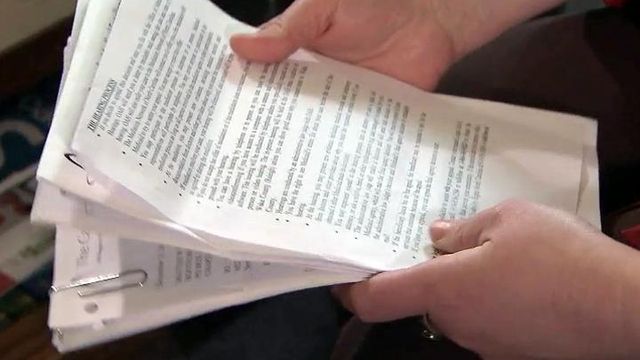Medicaid bureaucracy pinching some NC group homes
The operators of adult group homes across North Carolina report increasing delays in the Medicaid reimbursements that they depend on to keep their doors open.
Posted — UpdatedThe delays result from a combination of a new billing system the state implemented this month and a growing backlog of appeals by people seeking to retain their Medicaid coverage under new eligibility rules.
As of Jan. 1, group home residents were no longer eligible to receive Medicaid payments for personal care services, such as assistance with bathing, feeding or other daily chores. Federal regulators pushed for the changes to ensure the same personal care eligibility standards exist for people no matter where they live, instead of having rules that may steer people toward institutional care.
The new eligibility requirements came with new Medicaid billing forms that operators say are more complex, and some providers aren't filling them out correctly or completely. That means their reimbursements are held up until the paperwork errors are fixed.
"No one really knows what's going on and what we should do about it," Jenny Gadd, manager of Booth Road Group Home in Chatham County, said Tuesday.
Phone calls to state and federal officials haven't helped, Gadd said.
"Our jobs are extremely challenging before we even get into the paperwork and appealing for services. It's an extra challenge that doesn't help us serve our clients any better," she said.
Last week, state officials said the operators of a group home in Montgomery County simply packed up their computers and left after telling officials that delayed Medicaid payments would force them to shut down. Local officials were able to find new residences for the more than 40 people in the home.
In addition to the paper maze, appeals for Medicaid coverage also have bogged the system down.
The Office of Administrative Hearings has received about 15,000 appeals this month from people seeking to re-establish their eligibility for personal care services. Fewer appeals were filed in all of 2012, officials said, noting about one-third of the January appeals have been processed.
Once appeals are registered, residents can continue to receive Medicaid coverage until their appeals are heard.
Gadd said her group home hasn't been able to file appeals yet, and the deadline is Thursday.
"We had our assessment the day after Christmas, but we have not gotten letters (from the state required for an appeal)," she said.
Every delay makes it harder to remain open and serve the people with mental illness and developmental disabilities who live there, she said.
"It's 30 percent of our revenue," she said of the Medicaid funds. "You can't take that hit and stay open."
Alex Harrison, a group home resident who suffers from schizo-affective disorder, said he depends on the home's staff and fellow residents to monitor his medications and help him with everyday living.
"I need to be in a group home. I can't make it on my own," Harrison said.
The state Department of Health and Human Services is trying to train providers on how to complete the Medicaid forms and to process the appeals to get reimbursements processed faster, department spokeswoman Julie Henry said.
"We have already resolved many of the claims rejected due to billing confusion," Henry said in an email to WRAL News. "Our primary concern remains the individuals residing in these facilities and that they receive the care they need in the appropriate setting."
DHHS freed up about $1 million to help residents stay in the group homes through the end of January, and lawmakers said they hope to have a bill through the House by next week to resolve the Medicaid funding problems group homes face because of the changed eligibility requirements.
• Credits
Copyright 2024 by Capitol Broadcasting Company. All rights reserved. This material may not be published, broadcast, rewritten or redistributed.






